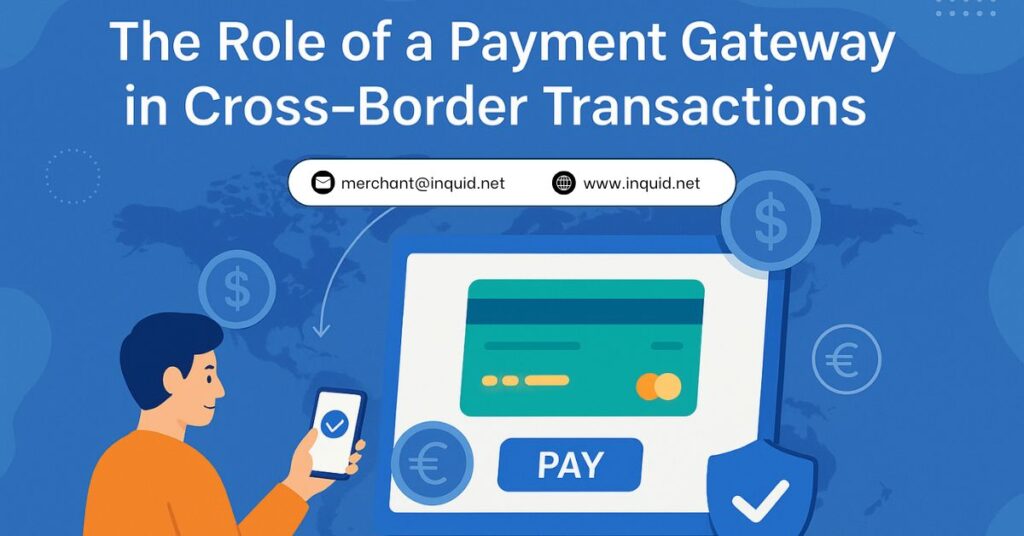
Businesses expanding beyond their home country often find that selling internationally is more than just adjusting prices or language. One of the most overlooked—but critical—components of successful global operations is the payment gateway for cross-border transactions. It sits at the center of every online transaction, managing how money moves between customers and merchants across different countries.
From currency conversions to fraud checks, a payment gateway can either support your growth—or create roadblocks you didn’t expect.
Why a Payment Gateway Matters for International Business
When someone makes a purchase from another country, it’s not just about charging a card. The transaction involves banks, card networks, local regulations, and currency rules. A payment gateway connects all of these players.
Without a system in place that can handle these layers smoothly, you risk failed payments, high decline rates, and frustrated buyers. That’s where choosing the right gateway becomes vital.
A good payment gateway for cross-border transactions should allow you to accept payments in multiple currencies, support international card types, and help reduce unnecessary declines caused by geographic mismatches. If you’re working in a high-risk category like gaming, forex, or digital services, the gateway also needs to handle fraud management and chargeback monitoring more effectively.
To understand what a strong gateway offers, check out inquid’s payment gateway solutions.
Currency Conversion and Local Acceptance
One of the first things buyers notice in a checkout experience is whether they can pay in their local currency. Offering this isn’t just a convenience—it increases the likelihood of the sale going through.
A payment gateway with built-in multi-currency support can handle conversions instantly, allowing you to price in USD, EUR, INR, or any local currency, while still settling in your home currency. This flexibility is especially helpful when selling to markets like Southeast Asia, Latin America, or Eastern Europe, where card usage patterns differ from North America or Western Europe.
Some gateways may charge excessive conversion fees or rely on external systems. That’s why working with a provider that directly supports local payment rails gives you a clearer edge.
Managing Risk and Compliance
Cross-border transactions carry a higher chance of fraud. Buyers and banks may flag purchases as suspicious simply because of IP differences or currency inconsistencies. This is where high-risk merchants face more pressure than others.
A payment gateway must offer strong fraud detection tools, but not so aggressive that it causes legitimate transactions to be rejected. For merchants in regulated or high-risk sectors, inquid’s chargeback management system is built to handle these specific concerns—without compromising on approval rates.
In addition, gateways should comply with local data handling laws, such as GDPR in Europe or PCI-DSS globally. Using tokenization or data redirection during checkout helps reduce your compliance burden while still keeping things secure for your customers.
Checkout Experience and Conversion Rates
Even if everything works under the hood, the customer experience still matters. A gateway should support mobile optimization, fast loading times, and consistent design across borders. Redirection during payment should be kept minimal, and the page should feel familiar to the buyer.
Offering alternative payment methods like local bank transfers, wallets, or region-specific cards can improve your conversion rates. These options are especially important in markets where credit card penetration is low.
If you’re looking for a provider that supports a broad mix of global and local options, inquid offers a flexible infrastructure that helps keep buyers from dropping off during checkout.
Settlements and Reporting
Cross-border settlements can take longer than domestic ones, especially when working across time zones or different banking systems. A capable gateway should give you clear, real-time insights into your transactions, settlements, chargebacks, and currency impacts.
The ability to reconcile global revenue streams without jumping through reporting hoops can save hours of accounting work each week. It also helps identify issues early—like sudden spikes in declines from a particular region.
Final Thoughts
Choosing the right payment gateway isn’t just about plugging in an API and hoping for the best. For international merchants, it’s about making sure every part of the transaction flow works efficiently—across countries, currencies, and compliance standards.
A gateway should help you move money with fewer complications, support local buying behaviors, and give you the tools to handle fraud and chargebacks with confidence.
If your business is expanding into new markets or operating in a high-risk category, it’s worth partnering with a provider that understands the full picture. Learn more about what inquid offers for global merchants.
